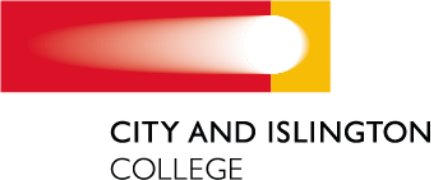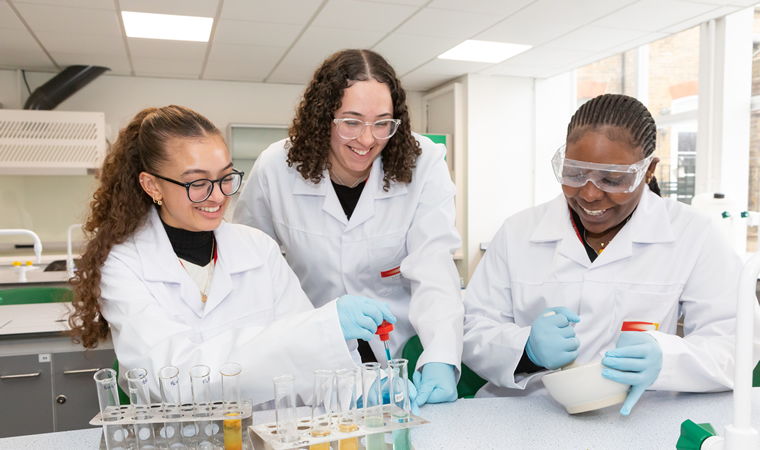
Medical Biosciences - Level 3 Access to Higher Education Diploma


ABOUT THE COURSE
If you would like to study a Medical Biosciences or Medical-related degree at university, but left school without the qualifications you need, then this Access to HE course could be for you.
This QAA recognised qualification is a route into university courses such as Medical Biosciences, Dental Hygiene, Radiography, Pharmacy, or Neuroscience, to name a few. It is well-established and widely accepted by universities, qualifying for UCAS tariff points that are comparable to the tariff points for three A levels.
Each year, over 20,000 Access to HE students apply for a degree course at a UK university; if you go on to complete a relevant degree at university, your Advanced Learner Loan will be written off by Student Finance England.
This course will help you get the qualifications you need to study a range of Bioscience and Medical-related degrees at university.
You will learn study skills such as report writing, reading and comprehension of numerical data, preparation for exams and note-taking.
You will also have a personal tutor who will support you during the year and who will advise you on your applications to higher education institutions.
Please note that this course is not suitable for those wanting to study strictly medicine or dentistry courses at university – if you are interested in medicine or dentistry then please consider our Access to Higher Education Medicine Diploma instead.
This course is delivered at the Centre for Applied Sciences, more info here: here.
WHAT WILL I STUDY?
For this Access to Medical Biosciences programme, we complete a total number of 60 credits:
- 45 credits from graded academic subject content units at Level 3
- 15 credits are required from ungraded units at Level 3
Topics covered can include:
- Biology / Human Biology – 15 graded Level 3 credits
- Chemistry – 18 graded Level 3 credits
- Physics & Maths – 12 graded Level 3 credits
- Study skills – 15 ungraded Level 3 credits
The course is taught as a Blended programme with both on-site and online learning. Typically, this will require you to attend College 3 days a week, each day is 4.5 hours:
- 2 days are online teaching & learning via Teams
- 1 day is on-site in our specialised laboratories at the Angel Campus
WHAT WILL I NEED?
You will need:
- To be aged 19 or older
- A minimum of two weeks relevant work experience, if applicable
- GCSE English and Maths at grade 4 or above (or A*- C)
All applicants must have an interview to confirm that the course is suitable for them.
HOW WILL I BE ASSESSED?
This course is assessed through coursework assignments, tests, and examinations throughout the course, which are set and marked by your teachers and externally moderated by OCN London. The science units are graded to pass, merit or distinction; you cannot resit units to achieve upgrades.
Assessment is continuous over the whole year and is based on a number of set pieces of work such as essays, projects, presentations, and tests.
Please be aware that the course is demanding, and it is expected that a similar number of hours of independent study per week is required to complete coursework and revise for in-course exams.
WHAT WILL IT COST?
Adults - Access to Higher Education
If you will be aged 19 to 23 prior to the start date of your course, and do not already have a full Level 3 qualification, you may be eligible for a Level 3 entitlement, in which case your study with us will be free. Otherwise, you will have to pay the fees yourself or apply for an Advanced Learner Loan.
Please see here for the documents you will need to show us.
Some courses will have other associated costs, such as for specialist materials and trips. Many of our students are eligible for financial support, see here for details.
WHAT CAN I DO AFTER?
Once you have completed your Access to HE course, you can progress to a Higher Education degree at a university or college.
You should check requirements for specific degree courses - different Higher Education institutions may have different entry requirements for similar courses.
We recommend that you check you have completed relevant work experience, such as work placements in clinics, dental surgeries, pharmacies or residential homes etc. in preparation for your personal statement.
MEET SOME OF THE TEACHERS
Imran has been teaching at the Centre for Applied Science at CANDI for over 10 years. He has taught Physics and Maths on a range of BTEC and Access courses in that time.
Recently, he has taught Access to Medicine, Biomedical Sciences, Engineering and Health and Human Sciences courses. He has a BSc in Physics from Imperial College London and works as an external moderator for OCN London. Imran is passionate about his subjects and loves it when his learners begin to enjoy his subjects too.
Suzanne Edwards
Suzanne has been working at the Centre for Applied Sciences for over 15 years. She teaches the anatomy and physiology on the Access to Medicine, as well as the Access to Biomedical Science courses.
Before coming to work at the college, Suzanne worked as a clinician in the NHS. As well as many years of teaching practice, she has a wealth of relevant practical experience, which she can bring to the classroom.
David Martin
David has taught Chemistry for over 20 years at City and Islington College on BTEC, A Level and Access courses. He has a BSC in Chemistry from Lancaster University and has worked as a Research Chemist for 5 years for a Lancashire Company Great Lakes Chemicals that produced fire retardants.
David enjoys sharing industrial experience in his teaching. During his time at the college, David has been the Laboratory Technician Apprenticeship Manager who has marked A Level Chemistry scripts and worked as a BTEC assessor running training courses for teachers to improve teaching and learning in STEM subjects.
David won a technical teaching fellowship in 2019 funded by the Education and Training Foundation and enjoys teaching chemistry clearly with an aim for students to be as excited about the subject as he is.
Adekunbi Ajayi
Adekunbi started teaching in the college in 2021 and brings with her a wide range of experience teaching the BTEC Applied Science course. She has worked across a different range of qualifications in Applied Science. She is passionate about the success of her students and has an evidence-based track record of ensuring that her students achieve their desired goals and dreams.
Sam Turpin
Sam Turpin is an experienced lecturer in Mathematics, Physics, and Engineering, who is now acting as the Curriculum Manager for the Access and Higher Education Department.
After graduating with a BSc in Mathematics and Statistics from the University of Warwick, Sam completed a Postgraduate Certificate in Education in Further Education from the University of Greenwich, specialising in Mathematics. Since then he has taught in a number of London colleges, supporting learners through their GCSEs, A Levels, and Access courses for adults.
As a Curriculum Manager Sam not only oversees the academic aspects of the Engineering, Medical, Bioscience, Health, and Policing courses, but he also provides pastoral care to the students in the department, helping them with their university applications, academic obligations, and any personal issues throughout their time at the college.
The teachers listed may change, these shown are an example of the teachers who teach on these programmes.

